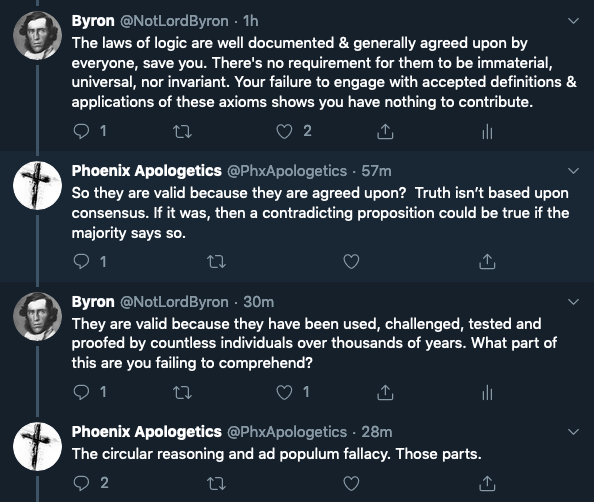Here's one. In yet another pointless twitter exchange: @PhxApologetics, a user parrotting the work of Jason Lisle insists on the 'immaterial, universal, and invariant laws of logic' must exist in the 'atheistic worldview', because they exist in his.
https://twitter.com/atheistic_1/status/1189966387135045632
When presented with: https://www.britannica.com/topic/laws-of-thought

my response, "The laws of logic are well documented & generally agreed upon by everyone, save you. There's no requirement for them to be immaterial, universal, nor invariant. Your failure to engage with accepted definitions & applications of these axioms shows you have nothing to contribute."
@PhxApologetics reply was: "So they are valid because they are agreed upon? Truth isn’t based upon consensus. If it was, then a contradicting proposition could be true if the majority says so."
To which my reply was, "They are valid because they have been used, challenged, tested and proofed by countless individuals over thousands of years. What part of this are you failing to comprehend?"
And to which @PhxApologetics replied, "The circular reasoning and ad populum fallacy. Those parts."
To which I replied, "A scientific theory (method), the cited laws of logic (https://britannica.com/topic/laws-of-thought), are all tested & open to correction by challenge by anyone who believes they have a viable alternative & that they can defend. That's neither an ad-populum nor circular."
------
So, argumentum ad populum & circular?
Byron